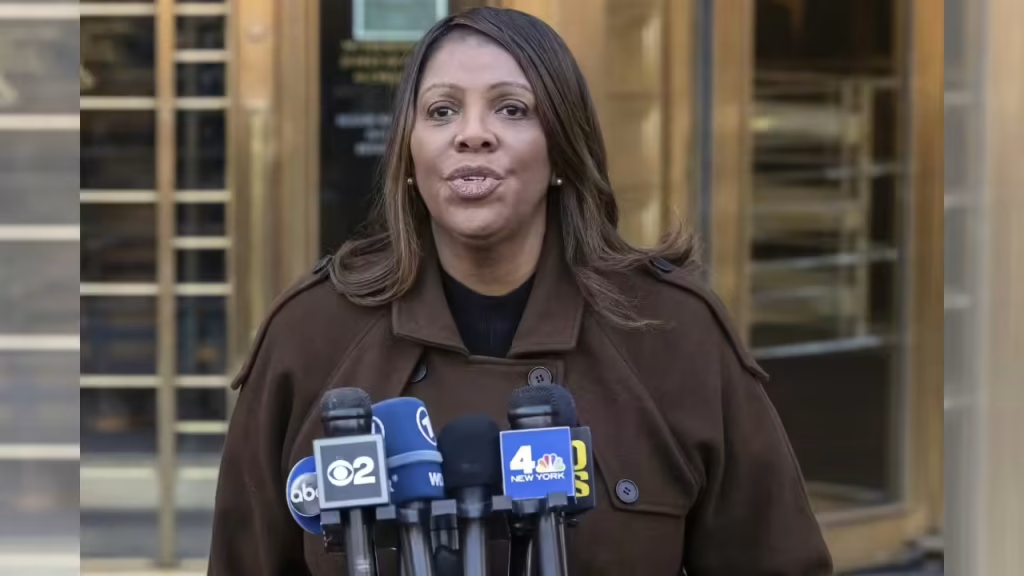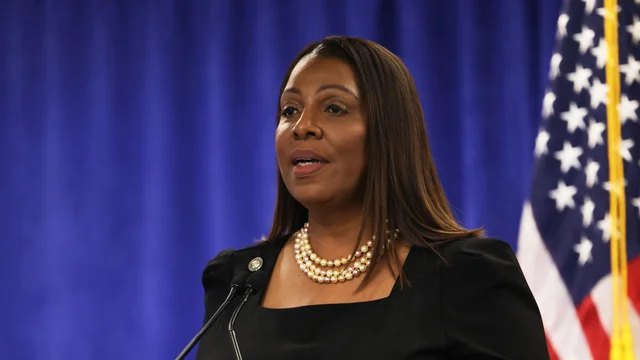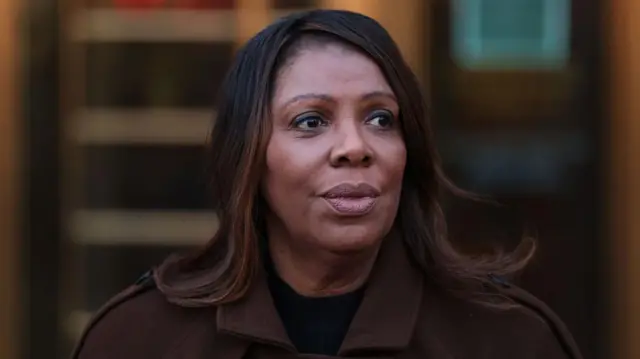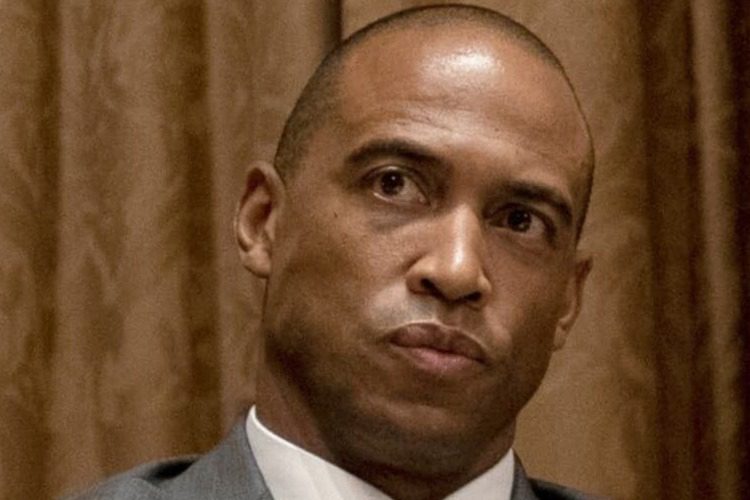New Documents Suggest Letitia James Misrepresented Brooklyn Property in 2021 Mortgage Deal With Citizens Bank, Raising Felony Fraud Questions
When you think of the most powerful law enforcement officials in America, you don’t usually expect their names to be linked to the kinds of crimes they prosecute. But that’s exactly what’s swirling around New York Attorney General Letitia James. Fresh allegations have surfaced that in 2021, she misrepresented the details of a Brooklyn property to secure a $200,000 mortgage credit line with Citizens Bank.
The story first broke into the wider conversation after conservative commentator Benny Johnson shared images of property documents showing a striking discrepancy. According to the official certificate of occupancy, the building at 296 Lafayette Avenue in Brooklyn was designated as a five-family dwelling. Yet, on the mortgage paperwork filed with Citizens Bank, the same property was listed as a single-family home.

Why does that matter? Because the classification of a property directly impacts how a mortgage is issued, the interest rate applied, and the costs attached to the loan. A single-family home typically qualifies for a standard residential mortgage. A multi-unit dwelling—especially one classified as five units—can require more stringent commercial terms, higher interest, and additional regulatory scrutiny. By allegedly listing her property as a single-family dwelling, James may have been able to sidestep those costs and secure more favorable terms.
Under New York Penal Law § 187.20, mortgage fraud involving sums over $50,000 can fall under Second-Degree Mortgage Fraud, a Class C felony. That carries a penalty of up to 15 years in prison. For someone holding the office of Attorney General, the state’s top prosecutor, even the hint of such a charge is explosive.
Critics of James argue that this revelation exposes deep hypocrisy. She has built a career on pursuing fraud cases, including high-profile lawsuits against corporations and even former President Donald Trump. To now be accused of similar misconduct flips the script dramatically. For her opponents, it’s evidence that she was never playing fair—that the rules she enforced on others weren’t the ones she lived by.
The documents circulating online show a clear paper trail. One page lists the mortgage amount—$200,000—with the property type labeled as “Dwelling Only – 1 Family.” Another, the Department of Buildings Certificate of Occupancy, confirms the property’s classification as a five-unit residential building. That inconsistency is at the heart of the allegations.
James and her team have previously brushed off mortgage fraud rumors as politically motivated attacks. Her defenders argue that such discrepancies can sometimes arise from clerical errors, bureaucratic mismatches, or outdated records. They point out that multi-family properties are sometimes converted or reclassified, and paperwork doesn’t always keep up. But skeptics aren’t buying it. The difference between a one-family home and a five-family dwelling isn’t a small clerical detail—it’s a fundamental distinction that changes the nature of the loan.
Adding fuel to the fire is the fact that the documents are dated 2021, a time when James was already a nationally recognized political figure. If she knowingly signed off on documents that misrepresented her property, it wasn’t just any borrower trying to get a better deal—it was the Attorney General of New York, the very person sworn to uphold financial integrity.
The political implications are enormous. James has often positioned herself as a watchdog against corruption and fraud, targeting powerful figures under the banner of justice. To see her accused of bending the rules for personal gain undermines that image. Her opponents are calling it hypocrisy of the highest order.
Still, it’s important to recognize that at this stage, these are allegations. No formal charges have been filed, and James continues to hold office. The official process of determining whether her actions rise to the level of fraud will depend on investigations, not social media posts. But in the court of public opinion, the damage is already being felt.

If the case moves forward, the key question investigators will need to answer is intent. Was the property misrepresented deliberately, with James fully aware of the discrepancy? Or was it a matter of bureaucratic oversight, with loan officers or clerks misclassifying the property along the way? That distinction could mean the difference between a damaging but non-criminal error and a felony carrying years of prison time.
This story also underscores a broader truth about politics today. In an era when trust in institutions is fragile, any hint of double standards or self-dealing can explode into a full-blown scandal. Voters expect accountability, and when public officials appear to play by different rules, the backlash is fierce.
For James, this may be the toughest battle of her career—not in the courtroom, but in the court of public perception. She has built her reputation on fighting corruption. Now, she must convince New Yorkers that she hasn’t fallen into the same traps she has so often prosecuted others for.

Whether these allegations stick or not, the episode has already reshaped the conversation around her. It raises tough questions about transparency, accountability, and whether political figures can maintain the public’s trust when their own financial dealings come under fire.
For the moment, the spotlight is firmly on Letitia James. The documents are out there, the allegations are spreading, and the calls for answers are growing louder. How she responds—and whether investigators take the next step—will determine not only her future but also the credibility of the office she holds.



